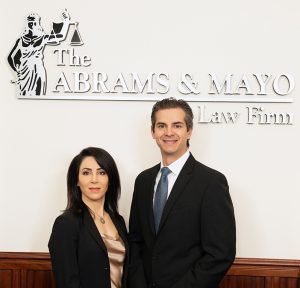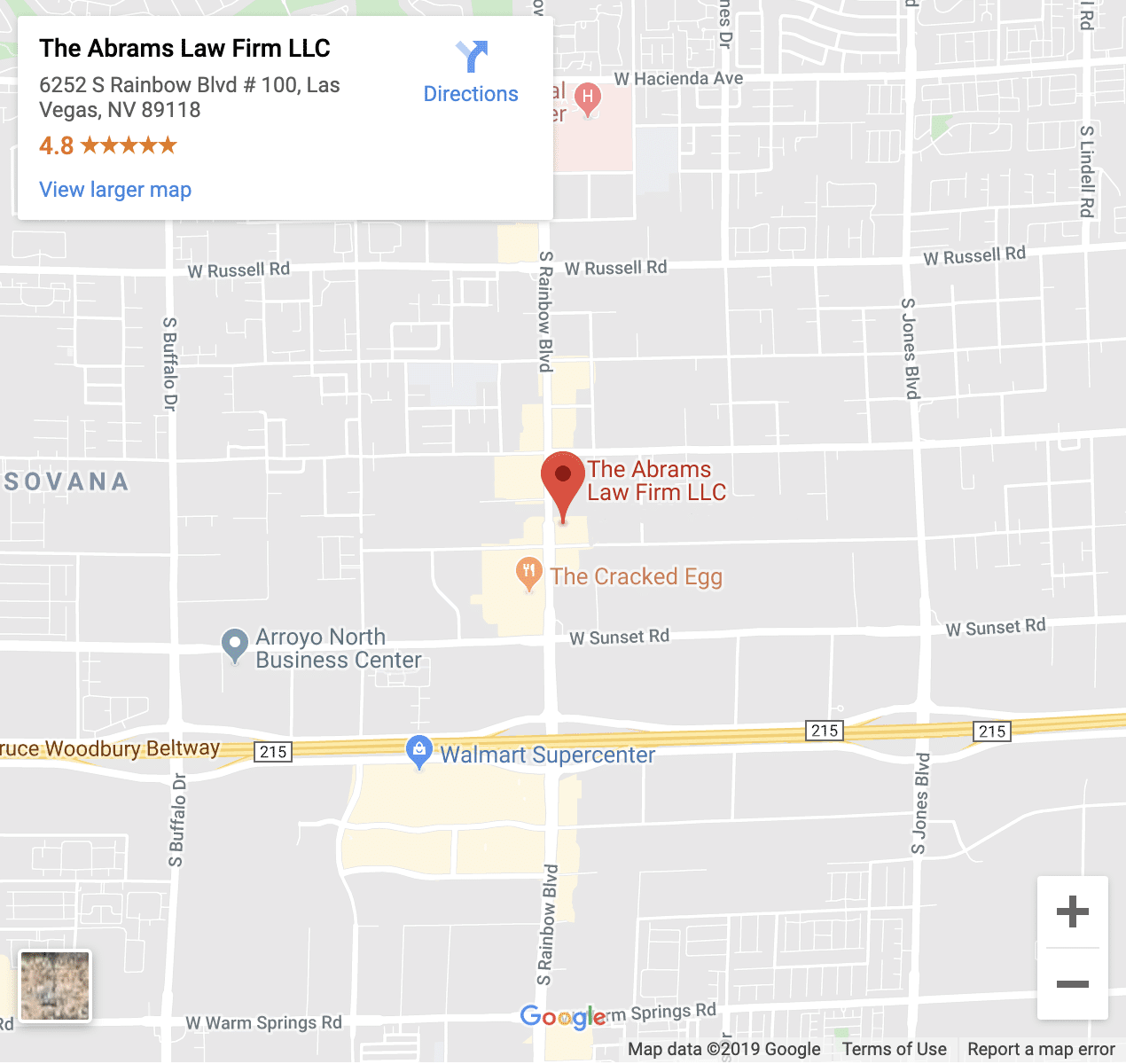
Businesses owned by either or both spouses are subject to property division during divorce proceedings. In some instances there is a valid prenuptial or post-nuptial agreement that addresses what happens to the business in the event of divorce. Nevada is a community property state. So if there is no such agreement, the business is subject to property division in the divorce proceedings like any other marital asset.
What is the Business Worth?
In order to resolve property division, one of the most important factors is assessing what the business is worth. The amount requires the work of business valuators. Business valuators are licensed professionals who consider the details of a business and form an opinion on its value.
Each business has unique assets and debts. So no two businesses, and therefore their values, are identical, even within the same industry. In some cases, the divorce attorneys representing each party agree on the choice of a business valuator. In other instances, each party retains their own valuator and the findings of each are then compared for similarities and differences. Each spouse’s divorce attorney then negotiates, or litigates, to determine a final value.
The Business Valuation Process
The valuation process includes an analysis of the company’s financials as well as numerous other factors. The business valuator considers whether the business has hard assets such as real estate or equipment, and/or intangible assets such as licensing agreements or goodwill. The valuator also examines financial documents including bank statements, inventory reports, tax returns, profit and loss statements, accounts receivable and payable reports.
Real property owned by the business can be a significant asset. If necessary, the business valuator may require the assistance of a certified real estate appraiser that specializes in commercial real estate. The same can be true for commercial equipment. Depending on the type, age, and amount of business equipment, a separate expert’s opinion as to the value of the equipment may be required.
Some businesses rely heavily on the value of intangible assets. Tech and celebrity related businesses often have a portion of their value based on these types of assets. Intangible assets can include the value of a celebrity name, intellectual property rights, exclusive or non-exclusive licensing agreements, patents and trademarks.
Professional Practices
Professional practice businesses often have the intangible asset of “goodwill”. This means that there is a business value as a going concern and its reputation in the community which it serves. Often the goodwill is related to the holder of a special license. One or both spouses may have a medical, law, architectural, contractor or other specialty license. The license holder’s relationship to the business is a factor which complicates the property division aspects in a divorce. These intangible assets can have a wide range of value due to their abstract nature. So experienced divorce attorneys often have a list of business valuators who are well-versed in determining the value of intangibles.
Who Will Work at the Business During the Divorce?
If only one spouse works at the business, the easy answer is that the arrangement remains the same. In other instances both spouses are active in the daily operations. This complicates the matter as there is bound to be some conflict between the personal issue of divorce and the professional aspect of running a business. In the best case scenario both spouses can continue to work at the business. But this can cause unnecessary conflicts. Therefore, experienced divorce attorneys familiar with businesses and divorce are the best option to negotiate an agreement which defines the roles of each spouse until the divorce is finalized.
Who Owns the Business After the Divorce?
Business ownership can have many forms. In addition to one or both spouses, the business may have ownership interest from employees, outside investors, and/or family members. Any form of additional ownership interest adds a level of complexity and the ownership factors may affect the resolution method. Our divorce attorneys have published a comprehensive guide for business owners which goes into more detail. However, for the purposes of this article, we’ll assume that there are no other ownership interests.
Just as every divorce case is unique, so are the manners of resolution. In general some of the most common ways are:
- One spouse buys out the other
- The business is sold and the profits are divided
- Both ex-spouses continue to own the business
The most straight-forward method is for one spouse to buy out the other. This may entail trade-offs with other marital assets. For example, one spouse’s share of the equity in the marital home may be an offset. The same goes for any other marital assets subject to division in the divorce proceedings.
Another option is selling the business to a third-party and dividing the proceeds as part of a global settlement agreement. This is not typical especially in businesses where one or both of the spouses are founders. Typically, there is a strong emotional attachment to the business and selling out to a third-party is not the preferred solution.
The last option is that both ex-spouses continue to own the business after the divorce. Obviously the divorce happened for a reason and, while this option is possible, it is the most infrequent method of resolution.
Retain the Legal Counsel You Deserve
Business ownership, in any form, is a complex matter in divorce proceedings. Protect your rights with a team of divorce attorneys experienced in such matters. Our attorneys have decades of experience in guiding business owners through the myriad of options in order to achieve the best resolution. They can put your mind at ease if you are a business owner or the spouse of one and are considering divorce. They also work with clients that are considering changing divorce attorneys in active cases. Our Las Vegas divorce attorneys will speak with you directly regarding a consultation. Call our office at 702-222-4021 to speak with one of them and see if what we offer is right for you.



 There have been cases where one spouse wins a lottery or comes into another form of financial windfall during a Las Vegas divorce case. If you win the lottery or achieve some other significant financial upside, but are separated or in the middle of a Las Vegas divorce, what happens to your money? Do you get to keep it for yourself or are you obligated to divulge and divide it with your soon-to-be-ex? Continue reading to learn more from our
There have been cases where one spouse wins a lottery or comes into another form of financial windfall during a Las Vegas divorce case. If you win the lottery or achieve some other significant financial upside, but are separated or in the middle of a Las Vegas divorce, what happens to your money? Do you get to keep it for yourself or are you obligated to divulge and divide it with your soon-to-be-ex? Continue reading to learn more from our 
 When you divorce, all of your income and assets obtained during the divorce are subject to distributions that are not covered in a pre or post-marital agreement. Not all forms of income are treated the same, but all may come into play. There are special rules for certain assets such as pension funds, retirement benefits, and Social Security benefits. In this article, our
When you divorce, all of your income and assets obtained during the divorce are subject to distributions that are not covered in a pre or post-marital agreement. Not all forms of income are treated the same, but all may come into play. There are special rules for certain assets such as pension funds, retirement benefits, and Social Security benefits. In this article, our 
 Decisions about raising children can be difficult even in the best of times, and different views on religion, especially so. When parents are divorced, finding a compromise position about how to raise the children can be more so. If divorced parents fundamentally disagree about the religious upbringing of their children, who gets to decide what happens? Can both parents do their own thing, or can one parent actually stop the other from imposing their views? We discuss divorced parents and their children’s religious upbringing in the article below.
Decisions about raising children can be difficult even in the best of times, and different views on religion, especially so. When parents are divorced, finding a compromise position about how to raise the children can be more so. If divorced parents fundamentally disagree about the religious upbringing of their children, who gets to decide what happens? Can both parents do their own thing, or can one parent actually stop the other from imposing their views? We discuss divorced parents and their children’s religious upbringing in the article below.
 There are many factors to consider when evaluating which divorce attorney is the one best suited to represent you. It’s important to recognize that your case and concerns are unique. We also recognize that the level of expertise we provide is not required for every divorce case. Only you can determine what’s best for your case. The following highlights how and why our divorce attorneys in Las Vegas are different.
There are many factors to consider when evaluating which divorce attorney is the one best suited to represent you. It’s important to recognize that your case and concerns are unique. We also recognize that the level of expertise we provide is not required for every divorce case. Only you can determine what’s best for your case. The following highlights how and why our divorce attorneys in Las Vegas are different.
 The average age of people going through a divorce has increased in recent years. In fact, the divorce rate in the United States for people over the age of 50 has doubled since 1990. Divorcing at 30 may be as simple as determining alimony, child support, and a division of the parties’ bank accounts. Divorces involving older parties, however, are likely to include more complex issues. People accumulate wealth and more complex assets over time. For parties who invest in real estate, including both family homes and commercial properties, how will the divorce affect their ownership? Continue reading this article for a discussion of what happens to real estate in a divorce.
The average age of people going through a divorce has increased in recent years. In fact, the divorce rate in the United States for people over the age of 50 has doubled since 1990. Divorcing at 30 may be as simple as determining alimony, child support, and a division of the parties’ bank accounts. Divorces involving older parties, however, are likely to include more complex issues. People accumulate wealth and more complex assets over time. For parties who invest in real estate, including both family homes and commercial properties, how will the divorce affect their ownership? Continue reading this article for a discussion of what happens to real estate in a divorce.
 Not all divorces can be resolved as simply as deciding who gets the house and who gets the car. Those assets can be relatively easy to handle: Define the property as separate or community, establish the fair market value of the property, and then distribute between the divorcing spouses. Individuals and families, however, often own more complex assets, such as family businesses. Valuing a marital business during divorce is a far more complex matter. If you or your spouse owns part or all of a business operation, how will the value of the business factor into your divorce? In this article, we discuss the methods by which to evaluate the economic value of a business for the purposes of asset determination in a divorce proceeding.
Not all divorces can be resolved as simply as deciding who gets the house and who gets the car. Those assets can be relatively easy to handle: Define the property as separate or community, establish the fair market value of the property, and then distribute between the divorcing spouses. Individuals and families, however, often own more complex assets, such as family businesses. Valuing a marital business during divorce is a far more complex matter. If you or your spouse owns part or all of a business operation, how will the value of the business factor into your divorce? In this article, we discuss the methods by which to evaluate the economic value of a business for the purposes of asset determination in a divorce proceeding.




 Spouses going through divorce proceedings in Las Vegas are often surprised to learn how strongly the legal system encourages reaching an agreement outside of family court. Conducting a full trial and having the judge decide the matter is typically the last resort, costing the divorcing spouses involved more time, stress, and money. Therefore family judges presiding over Las Vegas divorce matters routinely encourage spouses to reach an agreement either by settlement negotiations through their respective Las Vegas divorce attorneys, or through mediation. In divorce matters involving child custody disputes, the family court actually requires the parents to enter mediation under Nevada State law.
Spouses going through divorce proceedings in Las Vegas are often surprised to learn how strongly the legal system encourages reaching an agreement outside of family court. Conducting a full trial and having the judge decide the matter is typically the last resort, costing the divorcing spouses involved more time, stress, and money. Therefore family judges presiding over Las Vegas divorce matters routinely encourage spouses to reach an agreement either by settlement negotiations through their respective Las Vegas divorce attorneys, or through mediation. In divorce matters involving child custody disputes, the family court actually requires the parents to enter mediation under Nevada State law.













